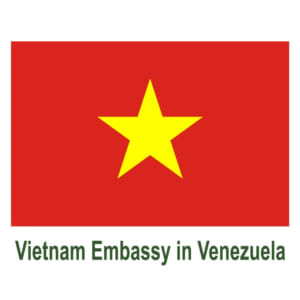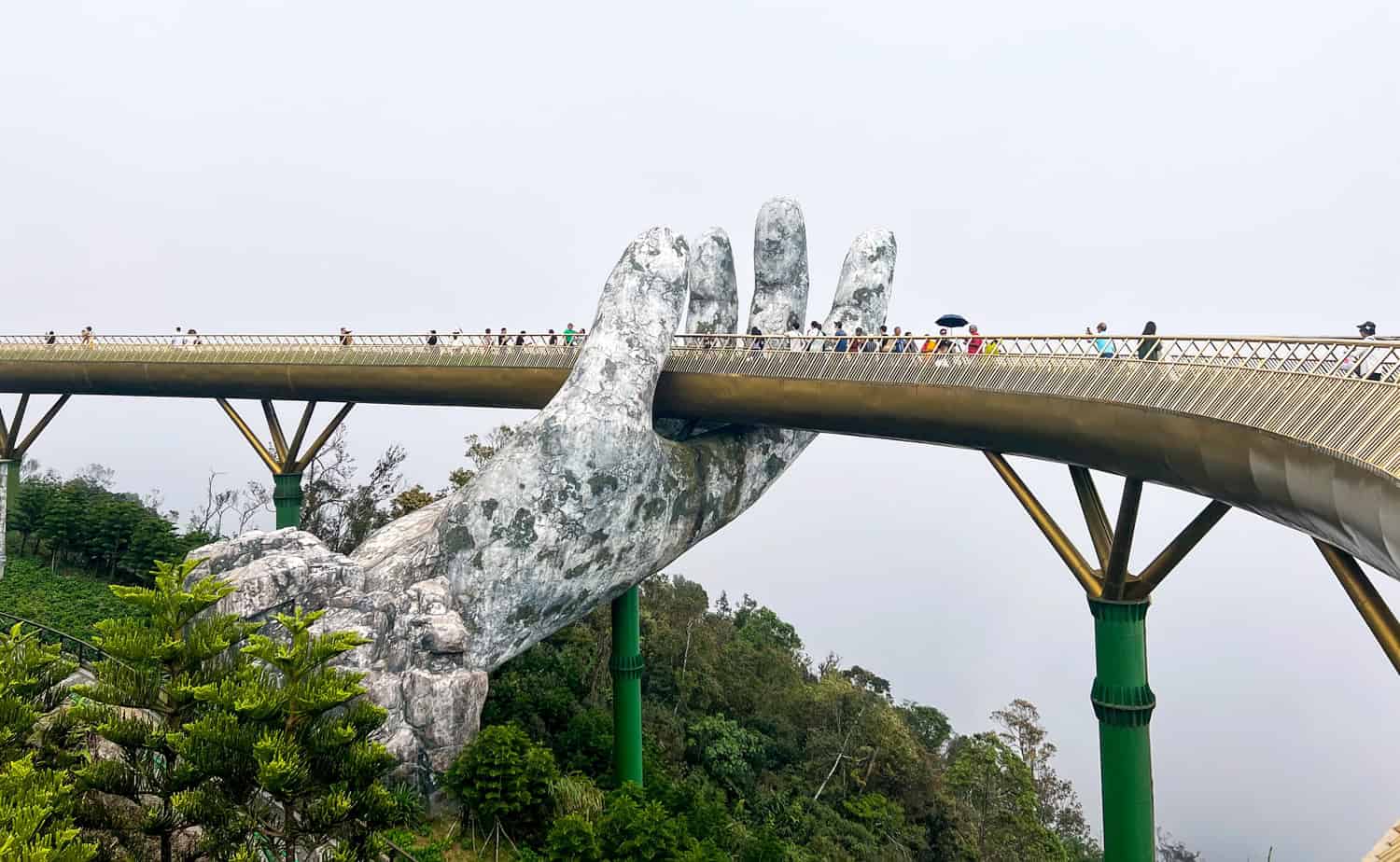
Vietnam Visa for the Bolivian: Easy Guide to Apply and Travel Requirements
Navigating the complexities of international travel can be challenging, especially when it comes to visa applications. This article provides a comprehensive guide on obtaining a Vietnam Visa for the Bolivian citizen, laying out requirements, processes, and tips to ensure seamless entry into this vibrant Southeast Asian nation.
Table of Contents
Introduction to Vietnam Visa Requirements for Bolivian Citizens

Before traveling to Vietnam, Bolivian citizens must be aware of the specific visa requirements essential for their journey. Understanding these requirements not only prepares travelers for what to expect but also eliminates potential hassles upon arrival.
Overview of Vietnam’s Visa Policy for Foreign Nationals
Vietnam has a diverse and comparatively straightforward visa policy that accommodates travelers from various countries. The country offers multiple visa types, tailored for tourists, business visitors, and transit travelers. For Bolivians, understanding the classifications and nature of available visas is crucial to ensure compliance with immigration laws.
The Vietnamese government has made strides to attract more foreign visitors, enhancing the visa application process. Overall, the aim is to streamline the experience while ensuring national security and facilitating tourism.
Importance of Securing a Valid Visa Before Travel
Traveling to Vietnam without a valid visa is not an option for Bolivian travelers. A visa serves as an official document permitting entry into the country, validating the traveler’s purpose of visit. Any irregularities in the visa can lead to delays at the border, fines, or even deportation in extreme cases.
For Bolivians, securing a visa not only guarantees safety but also ensures compliance with Vietnamese laws. Understanding the visa categories and respective requirements allows for a smoother travel experience and prepares tourists for the best possible adventure in Vietnam.
Key Benefits of Understanding Visa Procedures
Being well-versed in visa procedures offers several significant benefits. Firstly, it instills confidence among travelers, knowing they have fulfilled the legal requirements for entry. Secondly, with the correct information, travelers can effectively plan their itinerary, avoiding unnecessary roadblocks and cancellations.
Moreover, being informed about regulations can help travelers avoid potential pitfalls, such as overstaying their visa or applying for the wrong type. Ultimately, thorough knowledge and preparation can shape a positive travel experience filled with memorable moments and discoveries.
Types of Visas Available for Bolivian Travelers to Vietnam
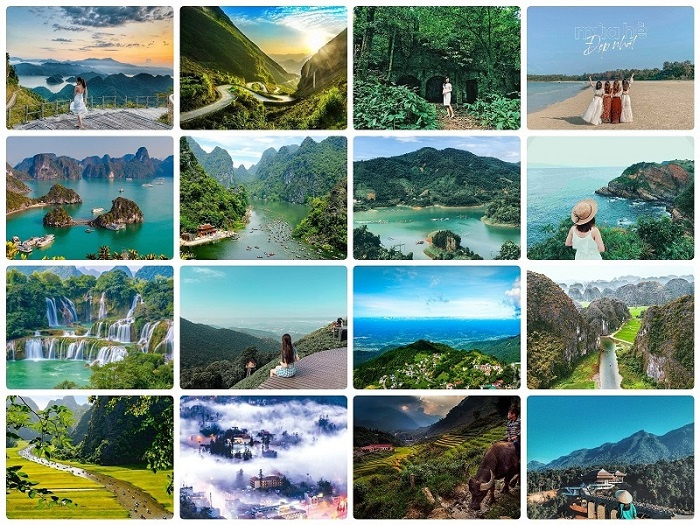
When it comes to traveling to Vietnam, there are several types of visas available for Bolivian travelers. It is important to know the nuances and suitability of each in order to select the right one for your journey.
Tourist Visa (Single and Multiple Entry)
For Bolivians wishing to experience the rich culture and breathtaking landscapes of Vietnam, the tourist visa is the most common option. This visa is available in two forms: single entry and multiple entry.
Single entry tourist visas are suitable for those planning a direct visit without subsequent exits to neighboring countries. It allows travelers to stay in Vietnam for the duration specified, usually around 30 days.
For those who seek a more extensive exploration of the region, a multiple entry visa would be advantageous. This allows travelers to exit and re-enter Vietnam during the validity of the visa, enabling excursions to nearby destinations such as Cambodia or Laos without needing to reapply for a new visa.
Business Visa and Its Specific Conditions
Bolivians traveling for business purposes are required to apply for a specific business visa. This visa caters to individuals engaging in business meetings, negotiations, or other professional engagements.
Business visas often require an invitation letter from a Vietnamese company along with detailed information about the applicant’s purpose of travel. Depending on the duration of stay and nature of the business engagement, different subcategories of business visas may be applicable, ranging from short-term to long-term.
It is essential for business travelers to ensure they fulfill all prerequisites to avoid complications during their stay. For professional engagements, establishing connections with local entities can also facilitate the visa process.
Transit Visa Options and Requirements
Travelers who are passing through Vietnam on their way to another destination may require a transit visa. The transit visa allows Bolivians to stay at the airport for a limited time, ensuring a smooth layover without the need for a full tourist visa.
Transit visas are generally easier to obtain, though specific conditions may apply. It’s crucial for travelers to check the latest requirements to ensure they gather the necessary documentation beforehand, as regulations may vary depending on individual circumstances.
E-Visa: Eligibility and Application Process
An e-visa represents a convenient option for travelers seeking a quick and digital method to acquire their travel documentation. Bolivian citizens are eligible to apply for a Vietnam e-visa, which simplifies the entire process significantly.
The application form can be completed online, and the approval process typically takes around three days. All that is needed is an internet connection and the required documents uploaded during the process. An e-visa is valid for 30 days and offers a single-entry option, making it a great choice for tourists or short business trips.
Visa on Arrival and Its Applicability for Bolivians
Visa on arrival (VOA) is another appealing option for Bolivians traveling to Vietnam. However, it comes with specific requirements that travelers must meet before they can benefit from this arrangement.
Once a pre-approval letter has been obtained through a designated travel agent or online service, Bolivians can pay for the visa fee upon arrival at select international airports in Vietnam. This cash payment enables immediate visa issuance, offering expediency for travelers arriving shortly.
However, travelers must ensure they have all necessary documents and a printed copy of the pre-approval letter to enter smoothly. Today, the VOA service has gained immense popularity, particularly due to its convenience for spontaneous travelers.
The Application Process for a Vietnam Visa from Bolivia
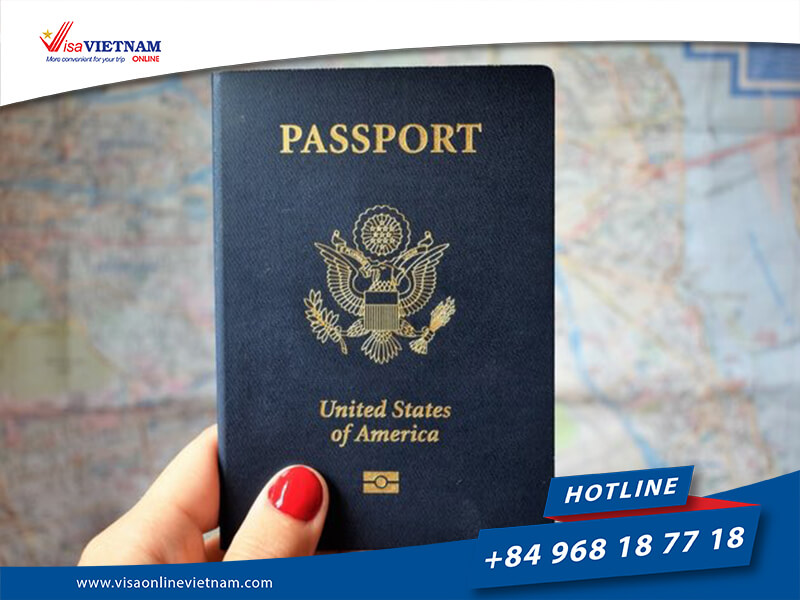
When applying for a Vietnam visa, Bolivian citizens should follow specific procedures to ensure their applications are accepted without issue. Here’s how to navigate the visa application process successfully.
Required Documentation and Supporting Papers
Before initiating the application process, prospective travelers must gather the necessary documentation expected by Vietnamese authorities. Essential documents include:
- A valid passport (with validity extending beyond the intended stay)
- Passport-sized photographs (meeting specific dimension requirements)
- Completed visa application form (available online or through the embassy)
- Proof of accommodation in Vietnam (hotel reservation or invitation letter)
- Round-trip travel itinerary or ticket confirmation
Bolivian travelers should make sure that all documents are accurate and up-to-date. Incomplete or incorrect submissions may result in delayed processing or rejection of the application.
Step-by-Step Guide to Filling Out the Visa Application
Filling out the visa application form accurately is critical for a successful application. Travelers should take their time to ensure every section is completed properly, and here’s how to do it:
- Gather All Required Information: Make sure that you have your personal information, travel details, and passport details on hand before you start the application.
- Complete Every Section: Tackle each section of the form methodically, ensuring nothing is left blank unless directed otherwise.
- Double-Check for Accuracy: Misprints or inaccuracies can lead to complications. Always review the completed form before submission.
- Attach Required Documents: Include scanned copies or hard copies of all necessary documents mentioned in previous sections.
Ensuring attention to detail at this stage of the application process can save travelers from headaches later on.
Submitting the Application in Person, by Mail, or Online
Now that the application is filled out and all necessary documents are gathered, it’s time to submit your visa application. Bolivians have several options for submission:
- In Person: Travelers can apply directly at the nearest Vietnamese Embassy or Consulate. Appointments may be required, so checking in advance is recommended.
- By Mail: For those unable to visit in person, submitting the application via mail is another option. A self-addressed envelope is typically necessary for returning the passport with the visa.
- Online: If opting for an e-visa, Bolivians can conveniently submit their applications through the official visa website.
Whichever method is chosen, it is advisable to keep a copy of the application and all submitted documents for personal records.
Processing Times and Expected Duration
Visa processing times may differ depending on the type of visa being applied for as well as the method of application. Generally, business and tourist visas may take anywhere from 3 to 5 working days to process at an embassy.
E-visas tend to be quicker, with applications typically processed within 3 days. However, delays can occur, particularly during peak travel seasons or due to unusual circumstances.
Travelers should plan their applications well in advance, especially if travel is imminent. An adequate buffer period allows for unexpected delays and provides peace of mind.
Visa Fees and Payment Methods
Each visa category comes with its specific fee structure. For tourists, visa fees generally fluctuate but may range from $25 to $50 for a standard visa application. Business visas may incur slightly higher fees due to the additional requirements.
Payment methods differ depending on whether the application is made in person or online. For in-person submissions, payment is typically made via cash, money order, or bank transfer.
Online applications usually require credit card payment or other digital payment options through the e-visa portal. Checking payment requirements in advance can save travelers time and avoid complications.
Vietnam Visa for Bolivian Citizens via Embassies and Consulates
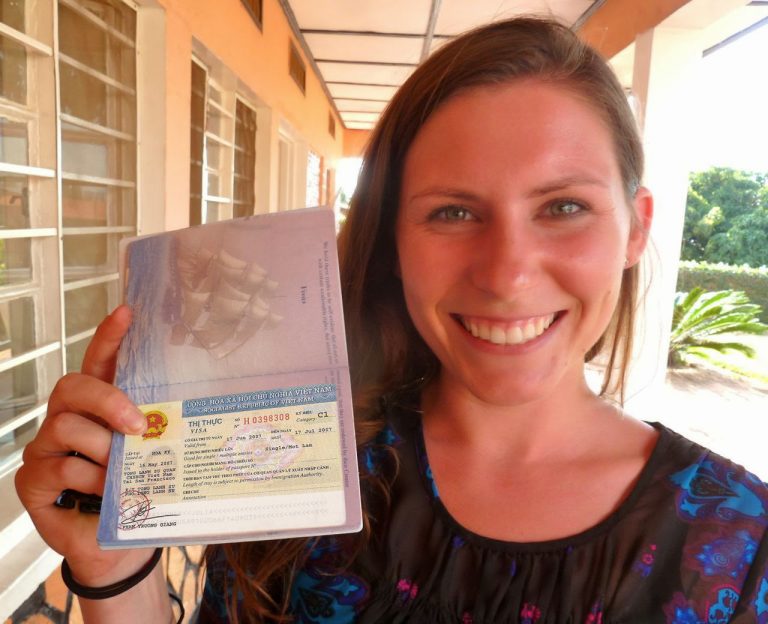
For Bolivians looking to acquire their Vietnamese visa through traditional means, connecting with local embassies and consulates is key. This section outlines what to expect when applying through diplomatic channels.
Contact Details of Vietnam Embassies and Consulates in South America
Vietnam maintains a network of embassies and consulates across South America. The primary diplomatic mission serving Bolivian citizens is located in Brazil, though communication may also be facilitated through other regional offices.
Traveling Bolivians should check the official Vietnamese government website or contact their nearest Vietnamese diplomatic mission to obtain the exact address, phone number, and operational hours. Having this information readily accessible allows for efficient planning.
Mandatory Appointments and Submission Procedures
When applying for a visa in person at an embassy or consulate, it’s essential for Bolivians to understand submission procedures, including appointment scheduling.
Many embassies require prospective applicants to book appointments in advance due to high demand. This process ensures that applicants receive personalized attention, leading to a more efficient visa application experience.
Upon arrival for the appointment, travelers should ensure they bring all required documentation and forms to present to consular staff. Following the submission, a receipt or confirmation will typically be given.
Collecting Your Visa: In-Person or Postal Delivery Options
Once the visa application has been processed, the next step is collecting the visa. Depending on the procedural options implemented by the chosen embassy or consulate, there are generally two methods for collection:
- In-Person Collection: If an applicant submits their application in person, they may have the option to return for visa pickup after processing is complete. This method allows travelers to clarify any doubts or questions with consular staff.
- Postal Delivery Options: Alternatively, embassies may offer to mail the approved visa back to the applicant’s residence. However, travelers should confirm the costs and duration for postal delivery, especially for time-sensitive travel.
Understanding these options helps Bolivians finalize their visa preparations with minimal disruption.
Applying for an E-Visa as a Bolivian
The introduction of e-visas has critically modernized the travel experience for Bolivians wishing to visit Vietnam. This section details eligibility for e-visas and how to navigate the online application process.
Eligibility Criteria for the E-Visa Program
To qualify for the Vietnam e-visa, there are specific criteria that Bolivian citizens must meet. The primary requirements include:
- Holding a valid passport with at least six months of validity from the date of entry into Vietnam.
- Purpose of travel must fall within tourism, visiting family or friends, humanitarian support, or business meetings.
Bolivians who plan to stay in Vietnam for no more than 30 days can easily take advantage of the e-visa program, provided they meet the aforementioned conditions.
How to Complete the Online Application Form
Completing an online application for a Vietnam e-visa can be a straightforward and user-friendly process. Travelers seeking to apply should:
- Visit the Official E-Visa Website: Access the Vietnamese government’s official e-visa page.
- Fill Out the Application Form: Include personal data, travel details, and passport information.
- Upload Required Documents: Ensure all necessary files, such as passport scans or photos, are included.
- Verify Information: Double-check entries for accuracy to prevent errors.
- Submit and Pay: Pay the visa fee securely online to finalize the application.
A seamless online process allows Bolivians to quickly obtain their e-visas, providing an efficient alternative to conventional methods.
Processing Time and Approval Notification
Once the e-visa application has been submitted and paid for, travelers can expect an approval notification within a typical timeframe of three working days.
Should there be any delays, applicants should check their email, including spam folders, for updates. Notifications indicate whether the visa has been approved or if further documentation is required.
Downloading and Printing the E-Visa
Upon receiving approval, Bolivians will need to download their e-visa from the official website.
The e-visa document should be printed before travel, as it must be presented upon entry into Vietnam, alongside the passport. Care should also be taken to ensure the printed visa matches the electronic version flawlessly.
In addition, tourists should maintain a digital copy accessible on their smartphones or devices, in case of emergencies.
Visa on Arrival for Bolivian Tourists
Visa on arrival offers a flexible option for Bolivian travelers that prefer to arrange their visa after landing in Vietnam. However, certain requirements and steps must be followed to ensure a smooth arrival.
Pre-approval Letter Requirement
Before a Bolivian citizen can experience a visa on arrival, securing a pre-approval letter is a prerequisite. This document can only be obtained through a reputable visa agency or online service.
The pre-approval letter serves as confirmation that the applicant is entitled to receive their visa upon entry. Once this letter is acquired, travelers should print it and keep it accessible for presentation to border officers.
Using a Visa Agent Service for Convenience
For Bolivians seeking a hassle-free experience, utilizing a visa agent service can be beneficial. Engaging a visa service facilitates handling all necessary paperwork to secure the pre-approval letter, simplifying the overall process.
Many services operate efficiently and can expedite the process, allowing travelers to focus on itinerary planning rather than administrative burdens.
Arrival at Vietnamese International Airports
Upon arriving at a Vietnamese international airport, Bolivians utilizing visa on arrival should proceed to the dedicated visa counter.
They must present their printed pre-approval letter along with a valid passport and any required photographs to the immigration officials. It is essential to ensure that all documents are in order to avoid complications at this stage.
Necessary Documents Upon Arrival
When traveling under the visa on arrival scheme, certain documents are critical for entry. Bolivians are expected to have:
- Pre-Approval Letter: Issued by a verified agency.
- Valid Passport: Should not expire within six months of intended stay.
- Photographs: Typically passport-sized as per immigration requirements.
- Visa Fee Payment: Payment is usually made in cash at the airport during entry.
Travelers should keep these documents organized and easily accessible to streamline the arrival process, enabling them to enjoy their travels immediately.
Important Visa Regulations for Bolivian Visitors
Bolivian visitors must remain aware of the various regulations governing their stay in Vietnam. Understanding these rules helps travelers to navigate their time abroad responsibly and legally.
Duration of Visa Validity and Extensions
Visa validity periods vary depending on the type of visa issued. Typically, tourist visas are valid for around 30 days, while business visas may extend for longer durations.
In case travelers wish to prolong their stay, applying for a visa extension can be an option. Procedures for extension typically require travelers to visit the Immigration Department in Vietnam. It’s advisable to start this process at least a week before the original visa expires to ensure compliance.
Immigration Control and Entry Requirements
Vietnam has strict immigration control procedures, and all travelers must adhere to set regulations when entering the country. Upon arrival, border officials will assess travelers based on their visas, ensuring that they comply with entry restrictions.
Should any discrepancies arise with documentation or visa types, travelers may face interrogation, delays, or denial of entry.
Overstaying and Penalties
Overstaying a visa in Vietnam can lead to serious repercussions such as fines, deportation, or restrictions on future entry. Hence, it’s imperative for Bolivians to fully understand their visa duration and abide by stipulated dates.
Penalties for overstaying may accrue quickly, with fines determined based on the length of overstay. Travelers are highly encouraged to set reminders to leave the country on or before their visa expiry date.
Requirements for Minors and Family Travel
Traveling with minors incurs additional requirements. Bolivian parents or guardians must ensure that children have their valid passports and, in some cases, documentation validating parental consent for travel.
Additionally, families seeking to apply for visas together should double-check that all documents are in order before submitting their applications. Family traveling regulations may have unique applications requiring sensitivity and careful consideration.
Preparing for Your Trip to Vietnam
In addition to securing a visa, preparing adequately for a trip to Vietnam encompasses broader travel considerations, including health, safety, and financial readiness.
Health and Vaccination Recommendations
Prior to traveling to Vietnam, it’s essential for Bolivians to consult their doctor regarding vaccinations and health precautions. Routine vaccines, as well as specific vaccines such as Hepatitis A, Typhoid, and Tetanus, are generally recommended.
Additionally, consider acquiring travel insurance, which is useful for unforeseen medical situations. Being healthy and safe while traveling can significantly improve the overall experience.
Travel Insurance Considerations
Travel insurance provides peace of mind for Bolivians journeying through Vietnam. Coverage typically includes trip cancellations, lost luggage, medical emergencies, and other travel-related issues.
Choosing the right travel insurance policy requires careful consideration of various factors, including geographical coverage and specific needs. Researching different options and comparing quotes can help travelers find a plan tailored to their adventures.
Currency Exchange and Financial Preparedness
Vietnam’s currency is the Vietnamese Dong (VND). Bolivians should familiarize themselves with the currency ahead of their trip, allowing for efficient handling of expenses during their stay.
It’s advisable to exchange currency either before traveling or upon arrival in Vietnam. Currency exchange counters at airports, banks, and official money changers are available, but avoiding street changers is crucial for ensuring fair rates.
Additionally, credit and debit cards are widely accepted at larger establishments, though cash remains popular for smaller shops and markets. Balancing cash with card payments creates financial flexibility while traveling.
Tips for a Smooth Visa Application Experience
Successfully navigating the visa application process can be achieved with a few essential strategies. Implementing these best practices will help Bolivian travelers minimize potential pitfalls.
Avoiding Common Mistakes During Application
Common errors can lead to visa rejection or delays. Bolivians should keep an eye out for frequent mistakes, such as:
- Inputting incorrect personal information
- Forgetting to sign the application
- Not including required supporting documents
Thoroughly reviewing everything before submission can prevent repeat applications and frustration.
Ensuring All Documentation Is Up-to-Date
A simple yet crucial step in ensuring a smooth application is to make certain that all documentation is current. Patience and diligence in gathering passports, photographs, and supporting evidence contribute to a successful outcome.
Travelers should proactively check expiration dates and requirements to be fully prepared before submitting their applications, fostering a worry-free experience.
Staying Informed About Policy Changes
Visa requirements can evolve; therefore, travelers must remain informed about potential changes. Following relevant Vietnamese government website announcements and social media accounts can provide up-to-date information that may affect visa eligibility or processes.
Keeping track of developments ensures that Bolivian travelers are aware of potential restrictions and can adjust their plans accordingly.
Frequently Asked Questions about Vietnam Visa for Bolivian Citizens
As Bolivians prepare for their journey to Vietnam, they may have several pressing questions. Addressing these common inquiries can help travelers feel more prepared and confident.
Can I Extend My Visa Once in Vietnam?
Yes, Bolivian travelers may apply for a visa extension while in Vietnam, particularly if they wish to prolong their stay. It is essential to act promptly and visit the nearest Immigration Office for assistance in processing the extension, ensuring that no overstay penalties are incurred.
Is It Possible to Change Visa Types After Arrival?
Changing visa types after entering Vietnam can be complicated and generally requires departing Vietnam to apply for a new visa. Hence, Bolivians should carefully select their initial visa type to match their travel intentions from the outset.
What Are the Refund Policies for Visa Fees?
Refund policies for visa fees vary depending on the application type and method. Generally, visa fees are non-refundable, even if the visa is not granted. Therefore, it is prudent to ensure all documentation meets the criteria before submitting applications.
Conclusion
Ensuring a hassle-free travel experience to Vietnam requires a thorough understanding of the visa process. From gathering necessary documentation to understanding visa types and application methods, proper preparation can significantly enhance the experience for Bolivian travelers. Following official guidelines and remaining aware of the latest developments will facilitate seamless entry into Vietnam, allowing Bolivians to enjoy the beauty and richness of this remarkable destination.
